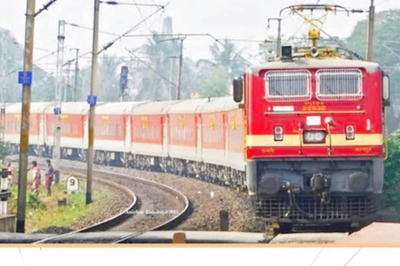
views
New Delhi: Noted economist and former vice chairman of Niti Aayog Arvind Panagariya expects the economy to grow by over 6.5 per cent in the current financial year.
He said the macro-economic indicators have remained stable for the past 3 years with current account deficit hovering around 1 per cent and inflation moderating.
"Expectations of implementation of the GST beginning July 1, 2017 led to some disruptions in supply during the April- June quarter with the quarterly growth rate declining to 5.7 per cent.
"But we should see recovery coming our way with the growth rate during 2017-18 reaching 6.5 per cent or higher," he told PTI in an interview.
Panagariya pointed out that a recently released Goldman Sachs report makes a plausible case that the economy will accelerate to 8 per cent growth in 2018-19.
Reversing a five-quarter slide in GDP growth, the Indian economy bounced back from a three-year low to expand by 6.3 per cent in July-September as manufacturing revved up and businesses adjusted to the new GST tax regime.
On whether the government could relax fiscal deficit target to boost economy, Panagariya said: "Personally, I do not believe that the Finance Minister and the Prime Minister would let their hard-fought success in achieving significant progress in fiscal consolidation slip past them at this late stage in the game."
When asked whether the Modi government would go populist in its last regular Budget to be presented in February next year, Panagariya said he hoped that populism, if any, takes the form of one-time sops and not long-term programmes that are against national interest and politically risky to withdraw afterwards.
"In this respect, the extension of the NREGA from 200 poorest districts to all districts and the hike in government salaries prior to the 2009 parliamentary elections, and the passage of populist legislations such as the Land Acquisition Act and the Food Security Act...were quite damaging in the long run," Panagariya said.
In contrast, he said, measures such as the distribution of goodies that political parties routinely resort to in Tamil Nadu are far less damaging because they are a one-time affair.
















Comments
0 comment